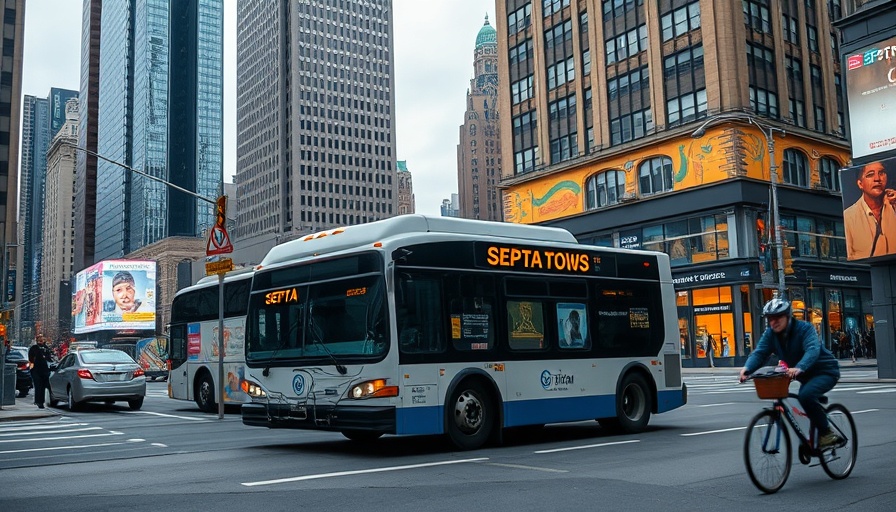
The Long Fight for SEPTA: A Legacy of Advocacy
For years, advocates across Pennsylvania have warned about the precarious state of the Southeastern Pennsylvania Transportation Authority (SEPTA). Once dubbed a symbol of public transit efficiency, SEPTA now finds itself in a funding crisis that has sparked alarm among community groups and transit riders alike. These advocates, however, have not remained quiet; they have been organizing long before the recent headlines about service cuts and fare hikes. As Connor Descheemaker, statewide campaign manager for Transit For All PA!, notes, "We need permanent, dedicated, long-term funding for transit everywhere," highlighting that the need for action is hardly a new revelation.
Grassroots Movements and Community Engagement
The response to the funding crisis has seen grassroots efforts morph into citywide coalitions. The advocacy group Transit Forward Philadelphia, comprising 37 organizations—from immigrant rights advocates to climate justice groups—has established a unified front in urging for sustainable funding. Stephen Bronskill, coalition manager, argues that the cuts will disproportionately affect marginalized and low-income communities. Further, he emphasizes that the ramifications extend beyond just transit riders, potentially worsening traffic, increasing rideshare costs, and complicating parking logistics for everyone in the city.
Fighting Back: A Coalition of Voices
Bob Previdi, policy director at Save the Train!, articulates a common sentiment among activists: “We can’t be a green city without functioning transit.” Through alliances like Save the Train!, which began as a local initiative to save the Chestnut Hill West Line, advocates have rallied support from over 71 organizations and 13 elected officials. Jo Winter, campaign manager at Save the Train!, explains how focusing on localized concerns can galvanize broader public interest: "Sometimes you need to focus on the local level to get people to care." This strategic approach not only illustrates the direct impact of transit cuts on individuals but also successfully connects the dots to larger systemic issues.
A New Era of Awareness
SEPTA's crisis did not happen overnight; it is the culmination of prolonged neglect and lack of action from state legislators. Advocates fear that without immediate and consistent funding reforms, an indispensable public good may deteriorate beyond recovery. As Bronskill mentions, reactions from the commuting public have been largely positive; the conversations growing around transit's necessity are more robust than ever. Many commuters now recognize the immediate stakes, from those on their morning commutes to individuals who rarely ride transit services.
Conclusion
The struggle for SEPTA represents more than just transport; it is about community resilience and the fight for fair access. It calls on all residents of Philadelphia—not just regular transit users—to recognize their role in preserving public transit as an essential city service. Advocacy is not merely about securing funding; it is about ensuring that everyone, regardless of their economic means, has access to the resources necessary for their daily lives. As these movements continue to gain traction, we must join in with awareness and action, ensuring that SEPTA can thrive rather than simply survive.
 Add Row
Add Row  Add
Add 




Write A Comment